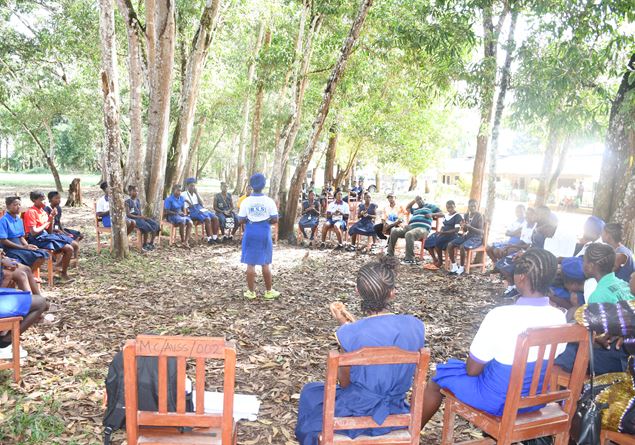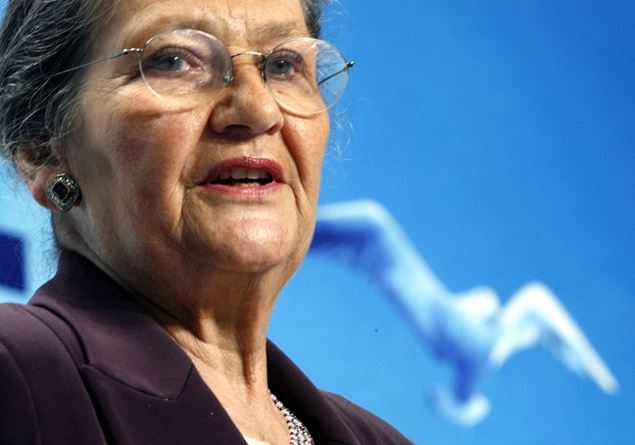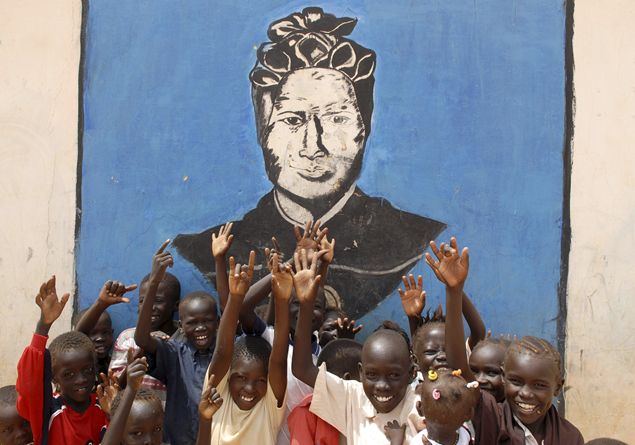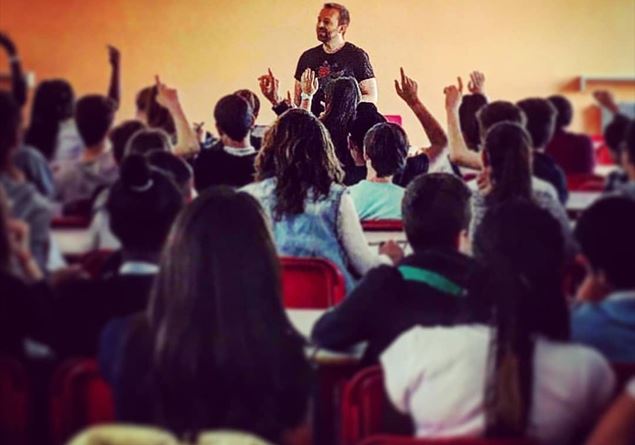
Photo by Bernard Ibelih/Actionaid: women in Nigeria.
In many African cultures and societies, especially subsaharan, “woman is not born, you become”. The postulate of Simone de Beauvoir, who in the mid -twentieth century had shaken the foundations of western patriarchal culture, if applied to a context such as that of rural Africa tells a different story, made of multi -silly social and cultural retairs with often brutal drifts. In many of these communities, in fact, the rite of passage that establishes the entry into the adult world of young women consists in female genital mutilation: a violent practice that provides for the removal or alteration of the women’s external genital system. They are often performed without anesthesia, in non -health contexts, which involve a very high mortality rate.
Yet they represent the ritual of entry into their reference community: they define the identity of the women who suffer them, giving them the title necessary to belong to the community and, in many cases, to become wives. Therefore women become through genital mutilation. Very often, in fact, this cultural practice falls within a stratified and complex socio-economic context, where marriages, based on the price of the bride, represent a real economic transaction where the terms of exchange are the fertility of the woman and Conspicuous sums of money. Erroneously exchanged for religious practices, in reality female genital mutilations are part of a well -rooted and stratificat cultural, social and economic horizonor in a context detached from regulatory and human rights protections, mostly justified as millenary traditions and therefore an integral part of the collective identity of many ethnic groups.
Although the countries with major incidence are Somalia, Guinea, Gibuti, Sierra Leone, Mali, Egypt, Sudan, Eritrea, Burkina Faso, Gambia, Ethiopia, Mauritania, Chad and Indonesia, in reality these practices were detected in 96 states, therefore affecting all the continents, including Europe. It is estimated that over 600,000 people bearers of MGF and 190,000 those at risk in 17 countries are on European soil. Only in Italy, according to the data collected by the Bicocca University of Milan in 2019, about 87,600 women are carriers of MGF, of which 7,600 minors, mainly of Nigerian and Egyptian origin. There would be about 5,000 girls at risk of suffering this practice.
February 6 is the international day of zero tolerance to women’s genital mutilations. Much is still the way to do to eradicate it permanently, although international regulations are already present in this regard that have decreased the impact in the last thirty years. The commitment is to eliminate this act of gender -based violence by 2030, according to the global agenda of sustainable development objectives for 2030. For years, the NGO Actionaid has been committed to the fight against female genital mutilations and early marriages, through programs co -financed by the European Union such as After, Chain and Join Our Chain. «We assume that the MGF are practiced in many countries of the world, in many different communities, in different ways but also in different ages, so the consequences they have on girls and women vary. If a girl has been subjected to the eight -day cutting, as happens in some Nigerian communities, it will probably have no memory. However, it could present physical consequences subsequently as cysts, infections, “he says Benedetta BalmvedereChain Project Manager. «This changes instead in cases where the girl is already in pre -adolescent age and therefore has a real memory of when her mutilation has been made. So in addition to having physical consequences, there will be other psychological trauma, pain immediately, how it had been done ».
Being a cultural and identity practice, the approach to women at risk or who have already suffered a mutilation is very delicate: «It is always a bit modified according to the women with whom we interfacce. And the same thing also concerns their awareness. Much is in the information that is then provided by explaining what are some of the possible consequences of these practices, so that perhaps women themselves are reflecting and understanding that the difficulties they have had up to that moment can actually be linked to that cut “. The help consists mainly in a psychological and informative support, which represents the first step to avoid the perpetrating of this practice: «We are not a social health service. What we try to do is to support them in a path of awareness of what could have happened and also to overcome what is normalization. In many communities, in fact, there is not even the idea that it is possible to ask for help to overcome certain difficulties and complications ».
A similar approach requires touch, care in listening, openness to diversity and above all respect for interested people. Action AID therefore uses key figures, the Community Trainer, specialized in linguistic-cultural mediation and which are usually part of the reference community. «It is essential to try not to have a judgment towards people who have suffered or practice mutilations. Personally, over the years I have understood that all people who undergo this practice do it simply to maintain an identity. Mothers carry it forward not because they don’t love the daughters, but it is precisely the opposite. In their idea, in their vision of things, they do it precisely because they love the daughters »he says Riham Ibrahim24 years old, Community Trainer Of the Milanese Egyptian community “once a woman decides to interrupt this tradition, in reality she interrupts her forever. The statistical data confirm that once the practice is interrupted, that generation of women will no longer suffer. It is a huge victory ».
Being able to access the communities and provide a different perspective than the multiisecular traditions handed down from mother to daughter represents the first obstacle for the fight against mutilations. «In the community they use another word to refer to this practice, another noun that I then discovered that in the various communities it takes different meanings. In the Egyptian community, for example, it takes the name of female circumcision. There are two practices called circumcision, one male and one female, but the latter is not a circumcision, it is a real mutilation. Several times I have also faced heavy discussions within the community, because clearly from the point of view of a person who has always lived inside, this is an identity act. If you show that perhaps it is not a very healthy practice, the person feels with his finger aimed at him, threatened in his own identity “, explains Riham,” we therefore try to enter the life of people on tiptoe and above all we do not judge Nobody ever, we simply bring our vision of things. Then it is up to the person to decide what are the choices he wants to make ».
Furthermore, the difficulty for women who decide to ask for help lies in facing the social stigma by those who are not part of the interested communities, which is based on the prejudice that are justified practices through religion. But neither Islam nor Judaism or Christianity provide such a costume within their precepts. Furthermore, disinformation in the medical field also involves inadequate or insufficient help, which often compromises the attempt to improve the living conditions of women who ask for help.
“Many people don’t even know about the existence of genital mutilations. Imagine a gynecologist who for the first time is in front of such a situation: he would not have the necessary tools to help her », Riham continues. “When I was little I was not fully aware of it. I saw friends of friends who suffered her, people not even far away from me, and I wondered why. So I went for a moment to inquire, initially by chance, then became a real social challenge. Seeing the girls who suffered her alone – we are talking about twelfths and fourteen -year -olds – pushed me to become volunteer and then to do a job ».
(High photo of Alfred Gorgra/Actionaid: awareness -raising activities against MGF in Sierra Leone)








